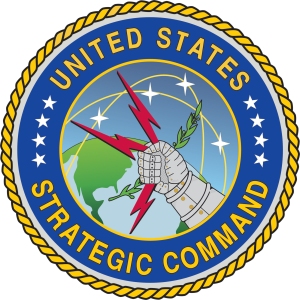Tweet
http://youtu.be/_DboMAghWcA
THIS SONG WAS INCLUDED IN AN INFORMATIVE ARTICLE ABOUT U.S. SOLDIERS and the costs of war from the Seattle Education blog: http://seattleducation2010.wordpress.com/2013/05/27/the-walking-wounded-2/
EXCERPT FROM MARGARET FLOWERS & KEVIN ZEESE ARTICLE
The Growing Global Challenge to Monsanto's Monopolistic Greed
[....]
Although labeling of foods that contain GMOs is required in Europe and US corporations such as Walmart and McDonald's comply with these rules in Europe, Monsanto and its allies are taking the fight to prevent labeling in the United States to new levels. As more state-level battles and an energized grass roots develop, Ronnie Cummins of the Organic Consumers Association reportsMonsanto and allies are trying to subvert these efforts by getting the corrupt federal government to pass a law forbidding states to pass labeling laws.
Impossible, you think? Well, Monsanto has done the seemingly impossible before. Most recently, one legislative victory that enraged people was theMonsanto Protection Act (actually misleadingly named the Farmer Assurance Provision) which was buried in a spending bill earlier this year and which protects Monsanto from the courts. For example, under the new law, federal courts are not allowed to stop the sale or planting of controversial genetically modified seeds, no matter what health issues may arise concerning GMOs in the future. There are now efforts to add a rider to the farm bill to repeal this measure.
Stopping Monsanto and Moving to Sensible Agricultural Policy
The first step to stopping the entrenchment of genetically modified foods in our food supply is labeling. As noted above, states are moving forward on that front, despite the efforts of Monsanto to stop them. This is the big battle because when foods are labeled, consumers have the power of knowledge and can choose not to buy them. Cummins reports that in Europe, the labeling of foods was the key to stopping the development of genetically modified foods.
One of the tools we must use is the boycott. Large food and beverage corporations that sell billions of dollars of organic and natural foods bankrolled the industry opposition to GMO labeling in California. Brand names like Kashi, Cascadian Farms, Bear Naked, Honest Tea, Odwalla, Naked Juice and others need to be told that we will not buy their products if they continue to fund ignorance by blocking GMO labeling.
To protect our food and health, the United States needs to adopt the precautionary principle, which means products must be proven to be safe before they are allowed on the market. The US applies a sham standard of "substantial equivalence" which avoids the need to test for safety. Applying the precautionary principle to Monsanto's products would mean a moratorium on them until their safety can be demonstrated by independent (non-corporate-funded), long-term tests for food safety as well as safety for agriculture. Our health should come before Monsanto's profits.
People need to be empowered not just with credible information about genetically modified foods and how to avoid them - that is, buy organic and non-processed foods - but also with access to courts to sue if agriculture, the environment or their health is damaged by GMOs. The repeal of the "Monsanto Protection Act" is a first step in that direction, but people also need to have a greater ability to sue corporations that harm them.
We advocate a two-path approach - protest what you do not like and build what you want. That means that while we encourage community-supported agriculture, organic and local gardening, preparing your own non-processed foods and working to change laws, we also urge protest. This May 25, nearly 300 protests are being held all over the world against Monsanto in the March Against Monsanto organized by Occupy Monsanto. Join these protests.
As it is with many other issues, the future of the world's food supply boils down to the people vs. concentrated wealth and corporate power. It highlights the corruption of government and the need for a real democracy in which people are allowed to make choices for themselves on basic issues like what kind of food they eat and what kind of plants they want to grow. Popular resistance to concentrated wealth is growing as more people demand the right to control their own lives.
You can learn more and hear our interview with Ronnie Cummins, Patty Lovera and Adam Eidinger, "Reasons to Protest Monsanto" at Clearing The FOG.






















